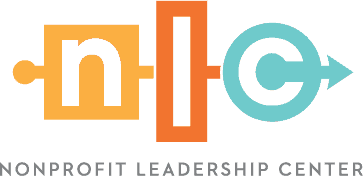Have you ever set audacious goals for yourself and then felt overwhelmed by not knowing how to reach them? Human development expert and Nonprofit Leadership Center trainer Dr. John Loblack says the key to achieving your goals is to first “identify your destination and work backwards.”
Regardless of the position you hold or your desired destination, Dr. Loblack says a personal development plan is essential to develop the competence and confidence to achieve your goals and lead from any seat.
Think of a personal development plan as a roadmap of the skills, strategies and education you need to reach your goals. Like a GPS, the more specific your plan is about where you want to go, the easier it will be for you to find the resources necessary to get there.
Use Dr. Loblack’s eight steps to create your personal development plan:
1. Conduct a self-assessment.
From a professional standpoint, what skills come easily to you? Ask yourself what you are not doing as strongly as you could.
Then, list your strengths and weaknesses. Write down three of your top skills and one area to address and improve.
2. Set goals.
Stephen Covey, author of “7 Habits of Highly Effective People,” encourages readers to “begin with the end in mind.” Setting goals and using them consistently increases your odds of accomplishing them.
When setting goals and charting a map to your destination, be sure to:
1. Write in present tense.
I am instead of I will. Your subconscious works better this way! The clearer the goal, the easier it will be for you to identify the resources you need to get there.
2. Own your goal.
The more ownership you take of your goals, the easier it will be to get up every morning and do what’s necessary to attain them.
3. Make your goals S.M.A.R.T.
Specific – Clearly define what needs to be accomplished.
Measurable – Ensure you can track your progress.
Attainable – Confirm that your goal is realistic and reachable.
Relevant – Understand why are you setting the goal you’re setting, and ensure it is yours.
Timebound – Define when the goal should be accomplished.
3. Develop strategies.
Setting goals isn’t just about knowing where you’re going, but also how you’re going to get there. To develop the best strategies for reaching your goals, follow these important steps:
- Recognize potential roadblocks: If obstacles were to appear, what would make your goal almost impossible to accomplish?
- Develop work-around strategies: What three things can you do to prevent these obstacles from stopping you?
4. Identify your resources.
Sometimes, what we have is not enough to get us to where we want to go. However, those who have become successful are often willing to help others who are trying to be successful. You can and should solicit as much help as possible when identifying potential resources to help you reach your goals.
Common resources include :
- Higher Education: Is more schooling necessary to achieve the goal you want to obtain?
- Professional Development Events: Is there information you need to build your confidence and skills you can obtain from training events, conferences and other learning experiences?
- Coaching: Do you need someone to help you answer your own questions?
- Mentoring: Identify a person who has experience in doing what you would love to do or what you’re doing now at a higher level.
- Self-Study: Direct your own learning! Find like-minded-people to bounce ideas and questions off of, or join a professional book club to gain new perspectives from others.
5. Create a timeline.
When setting goals, it’s critical to establish a timeline. A typical personal development plan is reflective of reaching your goal within three to five years. Creating a timeline will allow you to prioritize your time and increase your chances of succeeding. Ensure your timeline is realistic so you don’t set yourself up for burnout. Remember, goals are always adjustable!
6. Solicit feedback from supervisors.
When setting goals, learn from experience and don’t be too hard on yourself. The purpose of goals is not to prove, but to improve. Don’t blind yourself to what’s around the corner because you can’t see it. Soliciting feedback from supervisors expands your thinking and allows you to work your plan and make your plan work for you. Soliciting feedback demonstrates your commitment to your goals and enhances your personal development plan.
The purpose of goals is not to prove but to improve.
Dr. John Loblack Tweet
7. Track your progress.
You can only control the things you can control. How are you doing in relation to accomplishing your goals? Identify any personal or professional areas that are slowing you down. What can you do about it?
8. Celebrate!
This is just as important as every other step. Celebrating does not indicate an end, just a second to breathe. Acknowledge your accomplishments and overall progress in life then ask … what’s next?
Repeat this process regularly and teach it to someone else.


